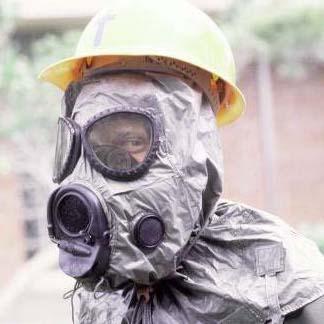When asked what kept him awake at night, General James Mattis famously answered, "Nothing. I keep other people awake at night." But not everybody is as courageously confident as "Mad Dog" Mattis.
Last week, I attended a national health security forum at BIO 2019, the annual convention of the Biotechnology Innovation Organization. The panel included impressively credentialed experts from across the entire government -- from the FDA and NIH to HHS and the U.S. Department of Defense. What sort of things kept them up at night?
The panelists listed several different concerns. Dr. Robert Kadlec and Tyler Merkeley, both with HHS, and Dr. David Hone of the Defense Threat Reduction Agency said that biosensing and point-of-care diagnostics (POCD) were inadequate. (POCD refers to the ability to quickly diagnose a patient "on the spot.") These are important because, in a medical emergency or public health crisis, it's not possible to act smartly until the problem is correctly identified. Specifically, our inability to quickly determine a microbe's antibiotic susceptibility profile was singled out as an area in need of improvement.
Another problem discussed was a shortage of basic medical equipment. Consider a worst-case scenario: There is an outbreak of a highly contagious disease, perhaps caused by a bioterrorist, in the heart of New York City. Suddenly, tens of millions of people on the East Coast will want or need a vaccine. Unfortunately, even if we have a national stockpile of vaccines, there may not be enough hypodermic needles available to administer them. We simply can't make them that fast. One solution, other than stockpiling 320 million hypodermic needles, would be to design special skin patches that deliver vaccines without needles. (This technology, known as microneedle patches, does in fact exist.)
But What Does DARPA Say?
Dr. Renee Wegrzyn, who works for DARPA (Defense Advanced Research Projects Agency), gave perhaps the most interesting answers. For the uninitiated, DARPA is sort of the "mad scientist lab" of the Department of Defense. Some of its crazier projects include a flying submarine and nuclear-powered cyborg insect spies. When DARPA speaks, we all should listen.
Dr. Wegrzyn said that DARPA was funding projects focused on influenza, opioid overdoses, organophosphate poisoning, and exposure to gamma radiation. The importance of the first two is self-explanatory. What about organophosphates and gamma radiation?
Organophosphates are generally used as insecticides, but some are extremely toxic and can kill people in tiny amounts. Kim Jong-Nam, the half-brother of North Korean dictator Kim Jong-Un, was assassinated using an organophosphate called VX. (Apparently, Jong-Nam was a CIA informant.) The fear is that organophosphates could be used in terrorist attacks. People would be exposed to gamma radiation following a nuclear blast.
And, of course, in typical DARPA fashion, the agency is seeking ways to address these threats by developing treatments that can temporarily alter gene expression.
Though our world is full of threats, both natural and man-made, we can be assured that smart people are diligently working to solve them. That should help the rest of us sleep at night.




